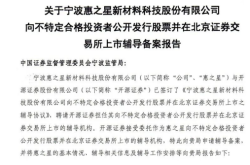Taobao Online Celebrity Shops: Navigating the Decline and Charting a New Path
![]() 03/28 2025
03/28 2025
![]() 564
564
Do you recall the fervent pursuit of Taobao online celebrity shops in years past? They once served as the epitome of fashion, frequent guests in many shopping carts, and harbingers of entrepreneurial aspirations for countless youth. However, the recent spate of closures for these shops has struck a heavy blow, sounding the alarm for all.
From the shuttering of "My Favorite Wardrobe" by pioneering online celebrity Zhang Dayi, to Zhou Yangqing bidding farewell to "GRACE CHOW," and Lidami, with 1.9 million social media followers, announcing the closure of her Taobao shop, alongside numerous others like "Ff5 official" and "MAKI STUDIO" issuing similar notices, Taobao online celebrity shops that once shone brightly are vanishing at an alarming rate. This wave of closures encompasses a staggering number of shops across a broad spectrum. According to incomplete statistics, from 2024 to 2025 alone, dozens of Taobao online celebrity shops with over a million followers chose to close or cease updating new products.
Why have these once highly anticipated online celebrity shops collectively fallen on hard times in such a short span?
The Underlying Challenges Behind the Closures
On the surface, these closures may seem like isolated incidents and autonomous merchant decisions. However, a deeper dive reveals myriad underlying issues that pose as "time bombs," threatening the survival of Taobao online celebrity shops at any moment.
(1) Traffic Conundrum and Rising Costs
In Taobao's vast e-commerce ecosystem, traffic is the lifeblood of merchants. However, the current traffic distribution mechanism on Taobao has ensnared many small and medium-sized online celebrity shops in a quandary. During promotional periods, the platform often funnels a significant portion of traffic to top merchants and big brands to maximize GMV. These top players, with their robust brand influence and financial muscle, effortlessly occupy the top of search results and garner massive exposure. Conversely, small and medium-sized shops, despite investing heavily in promotion, struggle to secure a slice of this traffic pie.
Moreover, the traffic conversion rate on Taobao is declining. Faced with a plethora of products, consumers often get bogged down in decision-making, leading to traffic dispersion and loss. According to relevant data, the average traffic conversion rate for small and medium-sized merchants on Taobao in 2024 decreased by nearly 20% compared to the previous year, meaning merchants must invest more effort and cost to convert traffic into actual sales. This traffic conundrum undoubtedly exacerbates the survival challenges for small and medium-sized shops.
Additionally, the intensifying competition in the e-commerce market and surging costs have overwhelmed Taobao online celebrity shops. The costs of advertising tools like Direct Train and Super Recommendation have soared, placing a heavy burden on merchants. To stand out, merchants must also invest substantially in store decoration, operational teams, customer service training, etc. These increased costs further compress profit margins.
A shop owner who has managed a Taobao online celebrity shop for years revealed that in the past year, their advertising expenses increased by 50%, yet sales only rose by 20%, leading to a significant drop in profits. The relentless rise in costs has left many merchants in the precarious position of "losing money to make noise," ultimately forcing them to close their shops to stem losses.
(2) Model Malaise
The once-glorious Taobao online celebrity shops primarily relied on the traditional e-commerce model, attracting fans through online celebrity influence and converting them into consumers.
However, with the rise of content e-commerce, this traditional model has been severely impacted. Content platforms like Douyin and Xiaohongshu have seamlessly integrated content and e-commerce through short videos and live streams, enabling precise "goods finding people" marketing. On these platforms, consumers are more easily drawn to engaging and valuable content, thereby sparking a desire to purchase.
In contrast, Taobao's traditional shelf-style e-commerce model appears somewhat outdated. Consumers must search for product keywords and sift through numerous options, lacking fun and interactivity in the shopping process. Although Taobao is striving towards content transformation with features like Taobao Live and Kuangkuang, due to its late start and platform limitations, it has failed to achieve the desired results. The live streaming data of many Taobao online celebrity shops pales in comparison to platforms like Douyin and Xiaohongshu.
This model disadvantage has gradually put Taobao online celebrity shops at a competitive disadvantage against content e-commerce.
(3) Policy Uncertainty
The frequent changes in Taobao's platform policies have left merchants floundering. In recent years, Taobao has continuously introduced new policies and rules aimed at optimizing the platform ecosystem and enhancing the consumer experience. However, these policy adjustments often lack sufficient research and communication, leaving many small and medium-sized merchants as "sacrificial lambs."
At the beginning of 2025, Taobao introduced a new policy redefining the standards for high-quality merchants. However, this standard is vague and lacks clear quantitative indicators, making it difficult for small and medium-sized merchants to accurately assess their eligibility. In terms of resource allocation, the platform tends to favor top players identified as high-quality merchants, marginalizing smaller merchants.
This policy uncertainty fills merchants with apprehension about future development and erodes their confidence in continued investment.
New Frontiers and Opportunities
Faced with numerous challenges on the Taobao platform, many merchants haven't resigned to fate but actively sought new avenues. They have turned their attention to emerging short video platforms like Douyin and Kuaishou, embarking on an e-commerce transformation journey.
On the Douyin platform, the transformation of "Guoguo's Home" serves as a successful model. As a four-crown Taobao shop with an 11-year history, "Guoguo's Home" keenly perceived Douyin's potential in 2018 and decisively entered the market, quickly gaining prominence. In less than a year, it achieved a remarkable 1:1 GMV ratio between Douyin and Taobao, with its 12-month GMV exceeding 400 million yuan.
"Chengqiqi" has shone brightly on the Kuaishou platform. By transitioning from traditional Taobao e-commerce to Kuaishou e-commerce live streaming, it has achieved a cross-platform and industry "double leap," setting a record of an average sales volume of 100,000 yuan per live stream and a monthly sales volume of nearly 3 million yuan. Their in-depth understanding of Kuaishou e-commerce's "people-goods-scene" methodology and precise grasp of short video fan attraction and live streaming sales have firmly established them on the Kuaishou e-commerce stage.
These successful transformation cases fully demonstrate the immense advantages of platforms like Douyin and Kuaishou. Compared to Taobao, these short video platforms boast a richer content ecosystem where users can not only shop but also enjoy various interesting short videos and engage in live stream interactions. This diversified experience significantly enhances user stickiness and activity. Moreover, the vast and widely covered user base of short video platforms can bring more potential customers to merchants.
More importantly, the algorithms on these platforms are highly precise, capable of accurately recommending products to target users based on their interests and behaviors, realizing efficient "goods finding people" marketing and greatly improving traffic conversion rates and sales efficiency.
Breaking the Deadlock
Faced with industry changes and challenges, Taobao online celebrity shops are not powerless. By finding the right direction and actively transforming, they can still carve out a path to survival in the new market environment.
Content is King
In the era of content e-commerce, high-quality content is crucial for attracting users and enhancing conversion rates. Merchants should abandon the traditional "selling mindset" and embrace the concept of "content marketing," providing users with valuable, engaging, and emotionally resonant content through short videos, live streams, etc., to ignite their purchasing desire.
In content creation, it's vital to focus on personalization and differentiation, avoiding homogeneity. By targeting the characteristics and needs of the target audience, create a unique content style and personality that sets you apart, enabling users to remember you at a glance amidst numerous contents. Some fashion online celebrity shops no longer merely showcase clothing styles in live streams but invite professional fashion influencers to share dressing tips and fashion trends, narrating the stories behind the clothing in conjunction with life scenarios. This personalized content has captured the attention of a vast number of young users, significantly improving the conversion rate.
In content publishing, maintaining timeliness and continuity is key to fostering high-frequency user interactions. Promptly address trending topics, align them with your brand characteristics, and create relevant content to captivate users' attention. Regularly publish high-quality content to cultivate users' habit of following you, thereby increasing user stickiness and loyalty.
Omni-channel Strategy
The single-platform operation model can no longer meet merchants' development needs. To diversify risks and achieve coordinated development, merchants should actively deploy across multiple platforms, integrate resources, and build a brand matrix. On different platforms, formulate differentiated operation strategies based on platform characteristics and user needs. On Douyin, leverage short videos for product seeding and brand promotion; on Xiaohongshu, share product usage experiences and lifestyles through graphic and textual notes to attract user attention; on Taobao, harness its e-commerce attributes for product sales and customer service.
To realize resource sharing and coordinated development across platforms, direct traffic from Douyin and Xiaohongshu to Taobao shops for conversion and monetization. In Taobao shops, set up entry points for following Douyin and Xiaohongshu to convert Taobao users into fans on other platforms, thereby expanding brand influence.
Supply Chain Optimization
The agility of the supply chain directly impacts a merchant's ability to respond to different channel needs. To enhance supply chain agility, merchants should strengthen cooperation with suppliers, forge close strategic partnerships, and achieve information sharing and collaborative operations. Employ advanced information technology to conduct real-time monitoring and management of the supply chain, promptly grasping information on inventory, production, and logistics to make swift decisions.
Optimize supply chain processes, reduce intermediate links, improve efficiency, and lower costs. Establish a flexible production system to facilitate small-batch, multi-batch production, catering to users' personalized demands.
The Future Landscape of E-commerce
The wave of Taobao online celebrity shop closures is not merely the plight of individual merchants but a microcosm of the transformation within the entire e-commerce industry.
It reflects the profound changes the e-commerce market is undergoing and the challenges faced by the traditional e-commerce model. However, crises often breed opportunities, and as technology advances and consumer needs evolve, the e-commerce industry is continuously exploring new development directions.
In the future, the e-commerce industry will advance in a more diversified, personalized, and intelligent manner. For Taobao online celebrity shop merchants, this is an era fraught with challenges but also brimming with opportunities.



